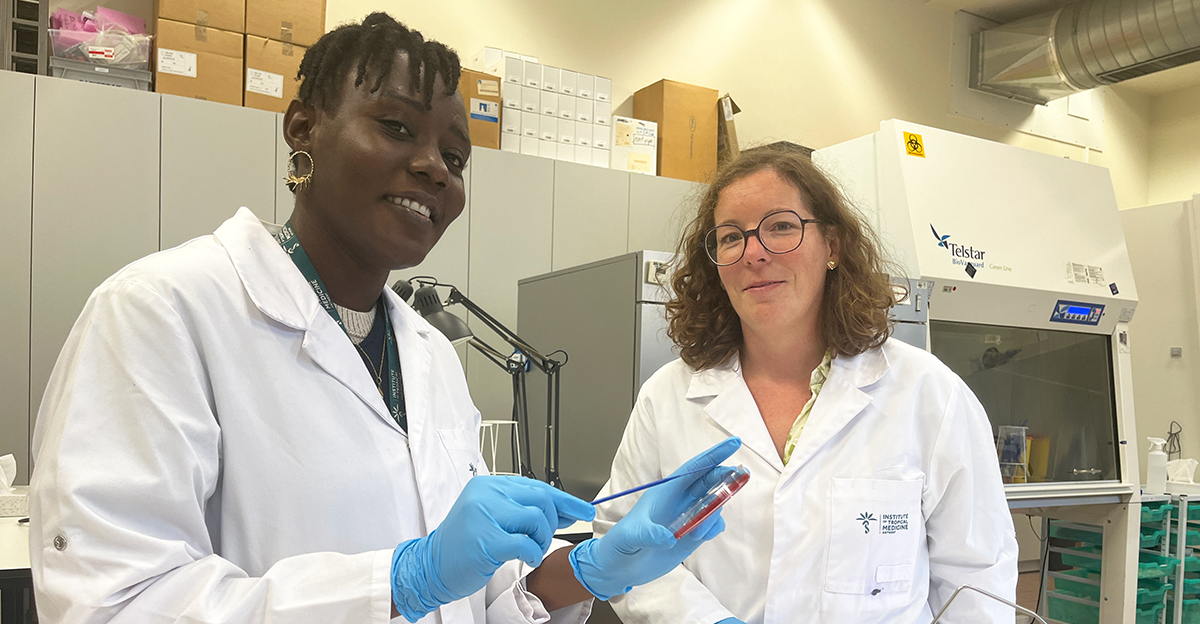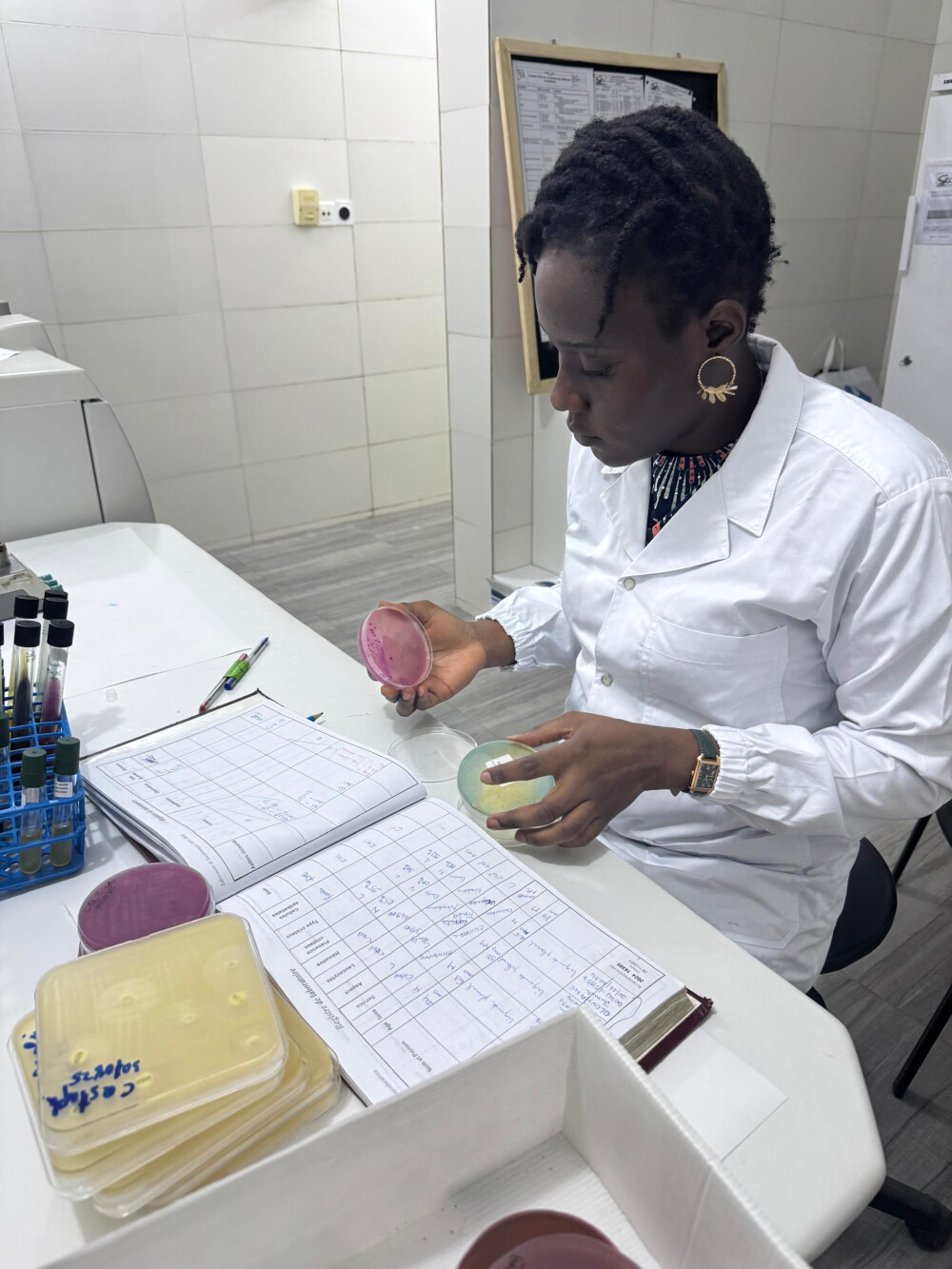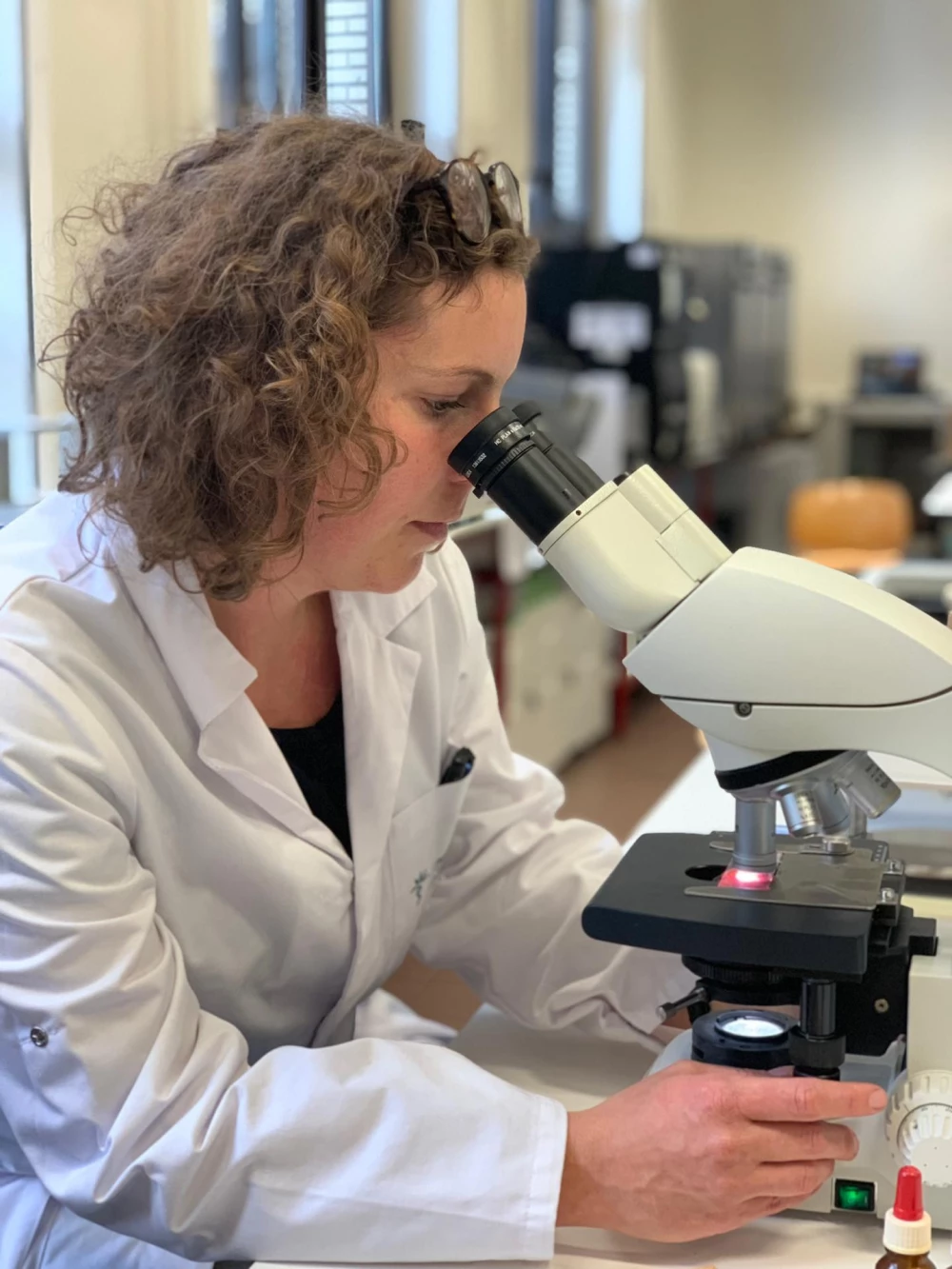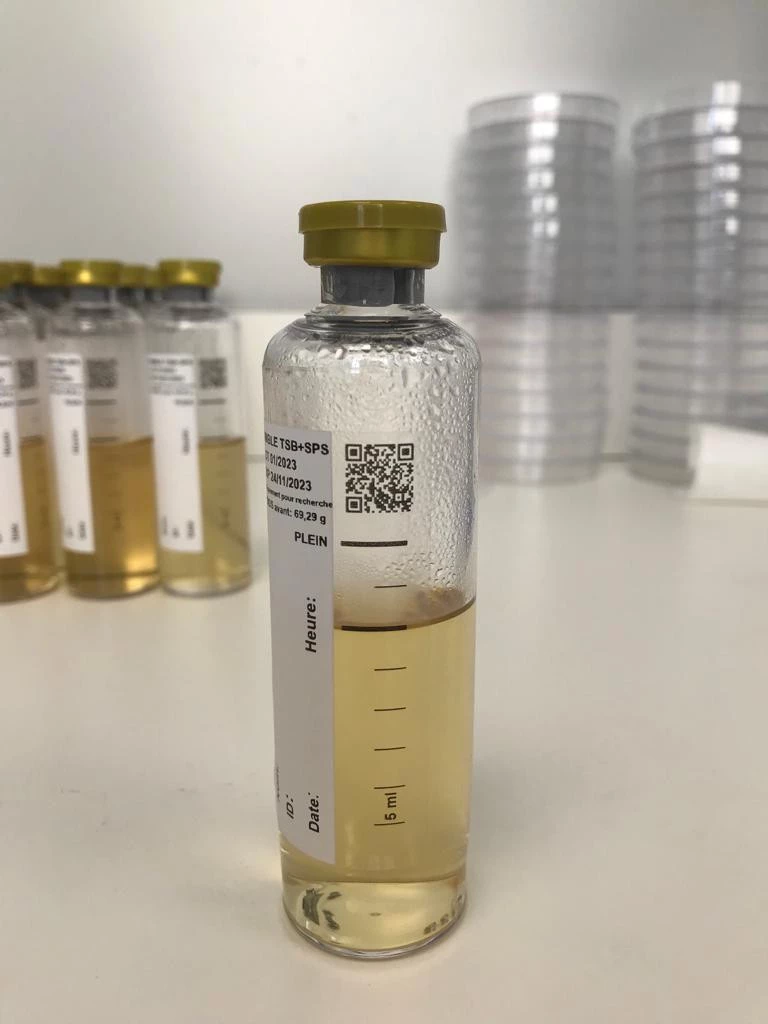"Innovation can also simply mean doing things differently"

Liselotte Hardy is a biomedical scientist and head of the Unit of Tropical Bacteriology at the Institute of Tropical Medicine (ITM) in Antwerp. Faridath Massou is a clinical biologist and PhD candidate under joint supervision by ITM and the Mycobacteria Reference Laboratory in Cotonou, Benin. They share one goal: making diagnostic tools more accessible in low- and middle-income countries. Together, they explore how local and social innovation can strengthen healthcare systems — from small-scale lab improvements to locally produced medical materials. On Wednesday 5 November, they will co-host a session on the topic at the upcoming ITM Colloquium.

What does health innovation mean to you — especially in the context of low- and middle-income countries?
LISELOTTE: “When people hear the word innovation, they often think of artificial intelligence or expensive technology. But health innovation is much broader than that. It also includes social innovation — new ways of thinking about or delivering healthcare. For me, innovation is anything that helps us do things differently and better.”
FARIDATH: “I agree. For countries like mine, innovation often starts with access. Such as access to basic diagnostic tools. Compared to Europe or the US, we still face huge gaps. So, when we talk about innovation, it’s about finding solutions that are adapted to our context and that work for us. The SIMBLE project was a great example of that.”
Could you tell us more about the SIMBLE project?
LISELOTTE: “SIMBLE started in 2021 with European funding and aimed to improve access to blood culture diagnostics for bacterial infections. We worked on two fronts: testing simplified diagnostic devices and setting up local production of culture media and blood culture bottles in Benin.”
FARIDATH: “We literally built a small production unit in a refurbished shipping container! It’s temperature- and air-controlled, clean and safe. Inside, we produce high-quality culture media that meet ISO standards. Before, we were completely dependent on imports. Now, we can produce locally — and that’s a huge step forward.”

What did you learn from working both in Belgium and in Benin?
FARIDATH: “It was eye-opening to see how different things can be in the field. At ITM in Belgium, we tested the blood culture bottles in a very controlled environment. But in Benin, working in real-life conditions with different nurses and technicians, we found some surprising results. It reminded us that technology has to work in context, not just in theory.”
LISELOTTE: “Exactly. Innovation isn’t about perfect lab results — it’s about what works in practice. That’s where true impact begins.”
What do you consider the main success of the project?
LISELOTTE: “Getting the project funded was already a success — implementation research isn’t always seen as exciting. In a later phase we would love to get these methods implemented in different laboratories in different countries.”
FARIDATH: “Before SIMBLE, I never imagined that we could produce our own blood cultures locally. This project opened a door many of us thought was closed. It changed how we think about what’s possible.”

How was SIMBLE received beyond the research community?
LISELOTTE: “We ended the project with a stakeholder meeting in Cotonou, attended by national and international stakeholders, including the Ministry of Health of Benin and the Belgian Embassy. The response was overwhelmingly positive. Sometimes success isn’t just in publications or data. It’s in raising awareness and showing that simple, context-adapted solutions can have global relevance.”
What’s next for you and the project?
LISELOTTE: “We hope to expand the container-based production model to other countries and continue developing the diagnostic technologies tested in SIMBLE — such as the growth detection device and a lens-free microscope. These and other devices, diagnostic tools such as an app and other methods will be showcased in the demo session at the colloquium. We want to showcase what innovations are being done in the field of diagnostics.”
FARIDATH: “And we hope to inspire others. Smaller conferences like the ITM Colloquium offer space to really connect. That’s what we want: to meet people, exchange ideas, and maybe open new doors in our minds.”
Spread the word! Share this story on









